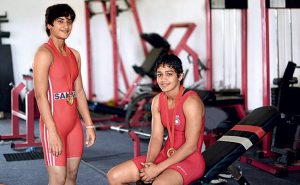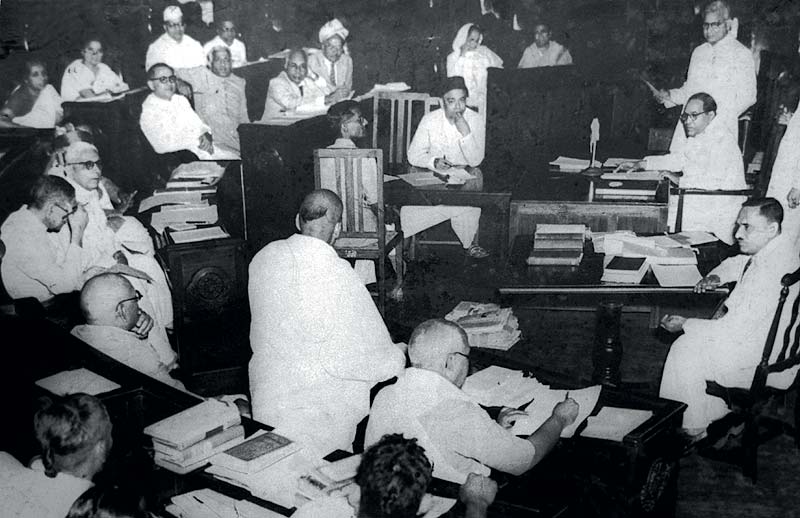
Respected Mahavir Singh ji,
I’m a driver. Some days ago, while driving to Delhi, I heard on my car radio that the Government of India had decided to confer Dronacharya Award on you. I know you are a wrestling coach from Haryana and a non-conformist. Going against traditional conservatism, you paved the way for the entry of not only your daughters but also many other daughters into this male-dominated sport. You proved that this game is not only for men. Women can not only take part in this game but also bring laurels to their country. The struggle you waged against our conservative society was extraordinary. I salute you for this. I was very happy that a person like you has been chosen for India’s highest award for sports coaches.
But my happiness disappeared the moment I started thinking a bit deeper. My first question is whether this award deserves Mahavir Singh. If not, should Mahavir Singh accept it? Also, what long-term effect will your accepting or not accepting the award have on the Indian sporting world and society in general?
Let us begin with the first question. This award does not deserve you. Why? For this, we will have to compare Dronacharya – after whom the award is named – and you. Dronacharya, according to the Mahabharata, was the guru of Kauravas and Pandavas and he ran an ashram. In that era, gurus imparted education in such ashrams. Apart from reading and writing, they also taught students the art of warfare. But the doors of the ashrams were not open to all. Only Brahmins and Kshatriya men were allowed in the ashram. The ashrams were strictly out of bounds for the Shudras (workers and farmers) and women. If a Shudra happened to hear – whether by default or by design – what was being taught in these schools, hot oil was poured into their ears. If a Shudra touched a book, their hands were severed and if they dared to read it, their eyes were gouged out. This was the kind of inhuman treatment that was meted out to the Shudras.
Now, who were the Shudras? Before Aryans came to India, their society was divided into three varnas – Brahmins, Kshatriyas and Vaishyas. All of them were hunters and animal-rearers and knew nothing about agriculture. After the Aryans invaded India, they enslaved the original inhabitants of the country. The

original inhabitants of India were peace-loving farmers who were prosperous and whose culture and social structure was quite advanced. Now, the Aryans added another varna to their three: Shudras, with some of them being subcategorized as Ati-Shudras. The Aryans branded those they could not vanquish as Asurs and Rakshaks.
The Shudras produced every necessity of life. They worked the land, wove clothes, made shoes, built houses, produced utensils and looked after the cattle. But the Kshatriyas and the Brahmins consumed a major part of the production. The Shudras neither had good clothes to wear nor enough to eat. They had neither houses nor utensils, nor shoes. This, when they were the builders and producers. To perpetuate this system, the Aryans decided to deprive the Shudras of education. They did the same to women. If Shudras acquired knowledge, they would realize how they were being exploited and looted. An educated person is more likely to break the shackles of slavery than an uneducated person. To ensure that the Shudras never rose in revolt, the Brahmins came up with a doctrine. They said that the Shudras were born as Shudras because it was their destiny. They had not done good deeds in their previous births. The Brahmins clarified what good deeds were: serving and obeying your master and working hard. Clearly, if the Shudras wanted a better life in their next birth, they were required to do good deeds in this one. According to the Gita, one had to labour without worrying about its fruits. Does anyone work without aspiring to something? Should anyone do so? If Shudras and women acquired education, the elaborate web of brahmanical lies would be exposed. Hence, both were barred from the portals of the ashrams.
The Brahmins had similar insecurities about the art of warfare. If the Shudras learnt how to fight, how to use weapons, being numerically stronger, they would free themselves from slavery. They would become the rulers and uproot the system that was based on inequality. That was why, only the Kshatriyas and the Brahmins were admitted to Dronacharya’s school. Eklavya went to Dronacharya. He wanted to learn archery but Dronacharya refused to admit him because he was a Shudra. Eklavya managed to learn archery on his own. When Dronacharya came to know of it, he went to Eklavya with other members of his varna and using force or through trickery, severed his thumb. Dronacharya did not want one Eklavya to train a thousand Eklavyas.
Brahmins and the Kshatriyas killed many great people ranging from philosopher Charvak to Shambuk because they were trying to educate Shudras and women. Should you accept an award named after a teacher who upheld this kind of exploitation and inequality? You are also a teacher. Have you ever refused to teach women, a worker or a farmer? Have you ever discriminated against anyone? If not, this award does not deserve you.
If you refuse to accept this award, it is bound to trigger a debate. Can a teacher who discriminated against his students be considered an ideal? Such a teacher kills many a talent, ruins the life of many a woman, severs the thumbs of many an Eklavya. Can such a teacher be considered an ideal? If not, why should an

award be named after him? The day we stop giving awards in the names of such teachers, no Eklavya will have a severed thumb. All will have equal opportunities in the field of sports and we will not have to face ignominy in international sporting competitions. After all, like teacher, like disciple.
Respected Mahavir Singh ji, you are not a Dronacharya; you are a Shambuk who gave education to the deprived sections and dedicated his life for the cause. You are Jotiba Phule and Savitribai Phule, who opened the doors of education to women, who faced the torture inflicted on them by the conservative society. You are Mahavir Singh, who fought society to open the doors of wrestling to women. How can you be a Dronacharya? You have to turn Dronacharyas into Mahavir Singhs. The deprived and I have great hopes from you.
If you accept the award, things will remain as they are. Dronacharyas will remain alive and Eklavyas will continue to lose their thumbs. But some day, someone will raise his voice against this system based on inequality. If not you, some other teacher, some student will do it. We need Eklavyas and Shambuks to continue this battle against this inequality that has been going on for thousands of years.
Sincerely,
Uday Che





